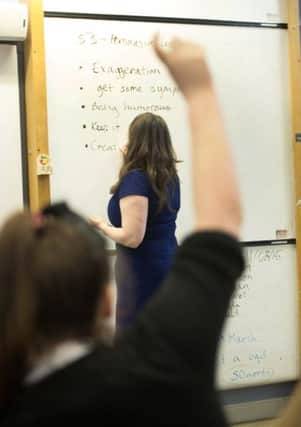Scottish teachers take a million sick days in three years


The data on teacher illness in primary and secondary schools also revealed that the 343,330 sick days last year was a three-year high after increasing on the previous 12 months.
The Scottish Conservatives, who released the figures following a freedom of information request, said teachers need more support after stress was noted as a common reason for absence.
Advertisement
Hide AdAdvertisement
Hide AdThe party pointed to a breakdown of the figures which showed more than a fifth of absences in Glasgow last year were for “psychological” reasons while in Edinburgh stress and similar conditions accounted for 18.5 per cent of absences.
In North Lanarkshire, stress was the cause of a third of sick days in 2014/15, a figure which increased to more than 40 per cent in Perth and Kinross. Over the three years, the number of sick days taken by teachers across Scotland was 1,004,138. The party said an analysis of the figures showed the average teacher absence a year for 2014/15 was 6.85 - compared with 6.52 the year before.
Scottish Conservative young people spokeswoman Liz Smith said: “Teachers do a fantastic job right across the country, sometimes under very difficult circumstances.
“But it’s clearly a concern that the number of sick days are on the rise, and we need to find out why that is.
“The Scottish Government needs to help local authorities do more to help staff where necessary, and hopefully get this statistic down for next year.
“It’s also very concerning to see stress feature so commonly on the list of reasons for absence.
“The SNP has made a series of promises on teacher numbers and class sizes over the years and these are now in tatters. That can only make life more difficult for those tasked with teaching our youngsters in classrooms.”